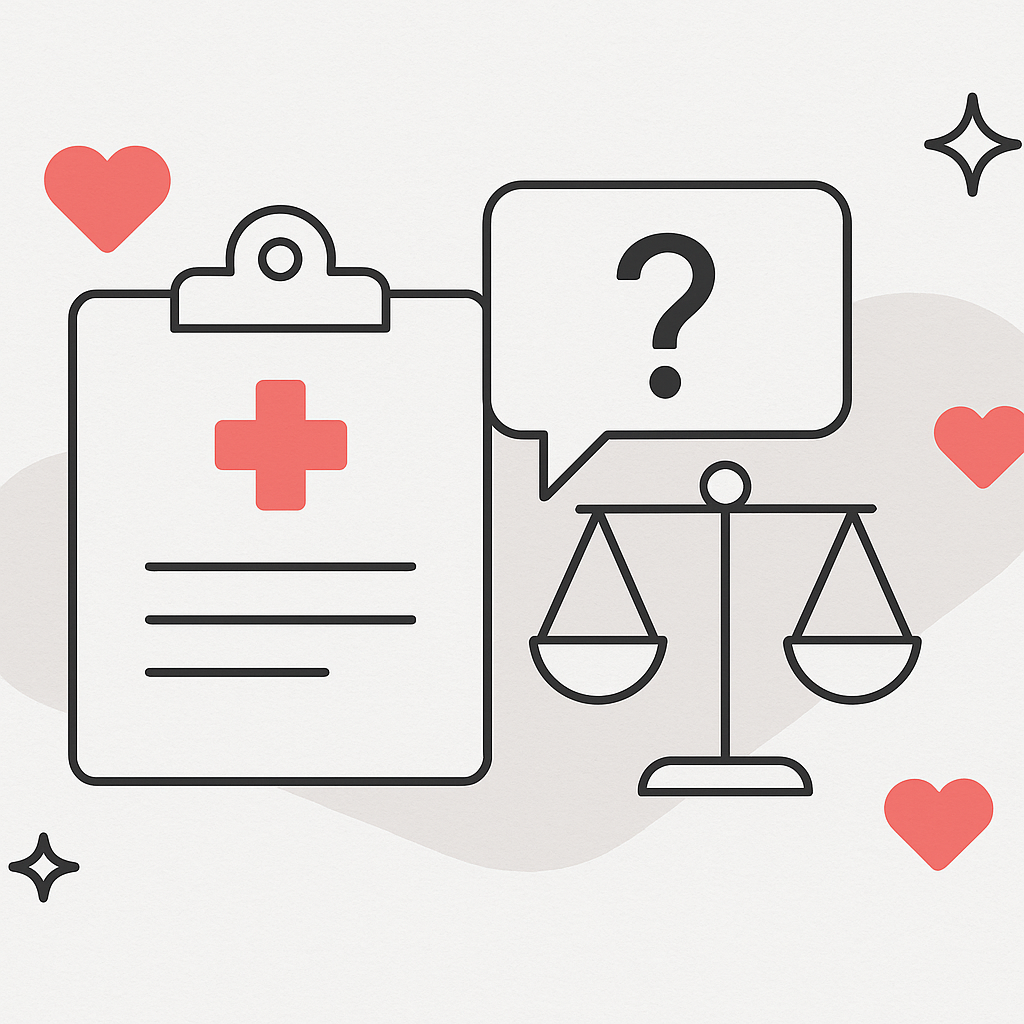Master your UCAT preparation with our expert revision guide covering all five subtests, effective time management strategies, and a customisable 8-week study plan for optimal performance.

Learn how to effectively reflect on your personal statement before submission, identifying weaknesses and enhancing your narrative to create a compelling application that truly represents you.
Your personal statement isn't just a collection of experiences—it's your opportunity to demonstrate insight and self-awareness. Taking time to reflect on your draft can transform a good statement into an exceptional one. Medical schools don't just want to know what you've done; they want to understand how these experiences have shaped your journey toward medicine.
After writing your draft, set it aside for at least 48 hours. This creates emotional distance and allows you to return with fresh eyes. When you're too close to your writing, you'll miss structural issues and gaps in your narrative that would be obvious to an admissions tutor.
When reviewing your personal statement, consider these three perspectives:
While self-reflection is crucial, external perspectives are invaluable. Seek feedback from:
When requesting feedback, ask specific questions: "Does my volunteering experience demonstrate empathy?" rather than "What do you think?"
Watch out for these issues during your review:
After reflection, be strategic about revisions:
Remember, reflection isn't about perfection—it's about authenticity and growth. Your personal statement should demonstrate not only your achievements but your capacity for self-awareness and improvement—qualities that will serve you throughout your medical career.
We recommend at least three thorough reviews: an initial review after setting it aside for 48 hours, a second review after incorporating feedback from others, and a final review for technical issues and character count just before submission. Many successful applicants go through 5-10 drafts before submitting.
While having a healthcare professional review your statement can be valuable for accuracy and realism, it's not essential. More important is getting feedback from someone who understands the application process and what medical schools are looking for. University career advisors or teachers experienced with medical applications can be excellent reviewers.
A good rule of thumb is that for every experience you mention, at least 50% of the content should focus on what you learned, how it changed you, or how it confirmed your interest in medicine. If you find yourself simply describing what happened without these insights, you need more reflection.
Yes, thoughtfully addressing challenges can demonstrate self-awareness and resilience—both valuable qualities in medicine. However, always frame these as growth opportunities and clearly explain how you've worked to overcome them or what you learned from the experience.

Master your UCAT preparation with our expert revision guide covering all five subtests, effective time management strategies, and a customisable 8-week study plan for optimal performance.

Learn effective communication techniques to excel in medical and dental school interviews. Discover practical strategies to articulate your thoughts clearly and connect with interviewers.

Master the core ethical principles for medical school interviews with practical scenarios, frameworks, and sample answers to help you navigate challenging ethical questions with confidence.

Learn how to effectively reflect on your personal statement before submission, identifying weaknesses and enhancing your narrative to create a compelling application that truly represents you.
Be a part of our community and never miss an update! Oh and, sign up for our newsletter – essential insights, zero fluff.
We'll leave no stone unturned!
Be reminded about every single event
{
"@context": "http://schema.org/",
"@type": "Article",
"name": "Medology: Reflecting On Your Personal Statement Guide",
"image": ["Image URL"],
"author": {
"@type": "Person",
"name": "Dr. Sarah Johnson",
"brand": "Medology",
"jobTitle": "Former Medical School Admissions Tutor",
"image": "https://www.medology.co.uk/images/dr-johnson.jpg"
},
"publisher": {
"@type": "Organization",
"name": "Medology",
"logo": {
"@type": "ImageObject",
"url": "https://www.medology.co.uk/images/logo.png",
"width": 600,
"height": 60
}
},
"datePublished": "2023-09-26",
"dateModified": "2023-09-26",
"description": "Learn how to effectively reflect on your personal statement for medical school applications. Discover strategies to evaluate your strengths, weaknesses, and ensure your statement aligns with your goals.",
"keywords": "medical school personal statement, personal statement reflection, medical application review, UCAS personal statement, medical school admission, personal statement evaluation, medical school application strategy",
"articleSection": "Personal Statement",
"wordCount": 850,
"timeRequired": "PT4M",
"mainEntity": [
{
"@type": "Question",
"name": "When should I start reflecting on my personal statement?",
"acceptedAnswer": {
"@type": "Answer",
"text": "Begin reflecting on your personal statement at least 2-3 weeks after completing your first draft. This gives you enough distance to view your work objectively and identify areas for improvement before submission deadlines."
}
},
{
"@type": "Question",
"name": "How do I know if my personal statement is strong enough?",
"acceptedAnswer": {
"@type": "Answer",
"text": "A strong personal statement clearly articulates your motivation for medicine, demonstrates relevant experiences with reflection, showcases your understanding of medical ethics, and presents your unique qualities. Have it reviewed by teachers, mentors or professionals for objective feedback."
}
},
{
"@type": "Question",
"name": "What are the most common weaknesses in medical school personal statements?",
"acceptedAnswer": {
"@type": "Answer",
"text": "Common weaknesses include lack of genuine reflection, overuse of clichés, insufficient evidence of commitment to medicine, poor structure, and failing to demonstrate key qualities valued by medical schools such as empathy, teamwork, and resilience."
}
},
{
"@type": "Question",
"name": "Should I mention all my extracurricular activities in my personal statement?",
"acceptedAnswer": {
"@type": "Answer",
"text": "No, focus only on activities that demonstrate skills relevant to medicine or significant personal development. Quality of reflection matters more than quantity of experiences. Select experiences that show your understanding of healthcare and personal growth."
}
},
{
"@type": "Question",
"name": "How can I make my personal statement stand out from other applicants?",
"acceptedAnswer": {
"@type": "Answer",
"text": "Stand out by providing deep, thoughtful reflections on your experiences rather than just listing them. Connect your experiences to specific attributes needed in medicine, use concrete examples to illustrate your points, and maintain an authentic voice throughout your statement."
}
}
],
"url": "https://www.medology.co.uk/resources/reflecting-on-your-personal-statement",
"educationalLevel": "Undergraduate",
"educationalUse": "Exam preparation",
"teaches": "Personal statement reflection strategies",
"audience": {
"@type": "Audience",
"audienceType": "Medical and Dental School Applicants"
},
"aggregateRating": {
"@type": "AggregateRating",
"ratingValue": "4.8",
"ratingCount": "127"
},
"review": [
{
"@type": "Review",
"author": "Priya Sharma",
"datePublished": "2023-09-15",
"reviewBody": "This article gave me the tools to critically assess my personal statement. After implementing the reflection strategies, I completely rewrote sections that were cliché and strengthened my examples. I received interview offers from all four of my choices!",
"name": "Invaluable Reflection Framework",
"reviewRating": {
"@type": "Rating",
"ratingValue": "5"
}
},
{
"@type": "Review",
"author": "Tomasz Kowalski",
"datePublished": "2023-09-10",
"reviewBody": "As a mature student changing careers, I struggled to articulate my journey to medicine. The reflection questions helped me identify my unique selling points and frame my previous experience as valuable. This guidance was exactly what I needed.",
"name": "Perfect for Career Changers",
"reviewRating": {
"@type": "Rating",
"ratingValue": "5"
}
},
{
"@type": "Review",
"author": "Wei-Lin Chen",
"datePublished": "2023-09-08",
"reviewBody": "The section on identifying weaknesses in your statement was eye-opening. I realized I had plenty of experiences but minimal reflection. After using these strategies, my personal statement now shows much deeper understanding of what I've learned.",
"name": "Transformed My Approach to Reflection",
"reviewRating": {
"@type": "Rating",
"ratingValue": "4"
}
},
{
"@type": "Review",
"author": "Jamal Ibrahim",
"datePublished": "2023-09-12",
"reviewBody": "I was about to submit my personal statement when I found this article. After going through the reflection process, I realized my statement lacked authenticity. The revision I made based on this guidance felt much more genuine and representative of who I am.",
"name": "Last-Minute Game Changer",
"reviewRating": {
"@type": "Rating",
"ratingValue": "5"
}
},
{
"@type": "Review",
"author": "Isabella Rodriguez",
"datePublished": "2023-09-05",
"reviewBody": "The peer review suggestions were particularly helpful. Getting structured feedback from others using the framework provided in this article revealed blind spots in my statement that I couldn't see myself. Well worth the time investment!",
"name": "Excellent Peer Review Structure",
"reviewRating": {
"@type": "Rating",
"ratingValue": "5"
}
}
]
}
{
"@context": "https://schema.org",
"@type": "FAQPage",
"mainEntity": [
{
"@type": "Question",
"name": "How many review cycles should my personal statement go through before submission?",
"acceptedAnswer": {
"@type": "Answer",
"text": "We recommend at least three thorough reviews: an initial review after setting it aside for 48 hours, a second review after incorporating feedback from others, and a final review for technical issues and character count just before submission. Many successful applicants go through 5-10 drafts before submitting."
}
},
{
"@type": "Question",
"name": "Is it necessary to have a physician review my personal statement?",
"acceptedAnswer": {
"@type": "Answer",
"text": "While having a healthcare professional review your statement can be valuable for accuracy and realism, it's not essential. More important is getting feedback from someone who understands the application process and what medical schools are looking for. University career advisors or teachers experienced with medical applications can be excellent reviewers."
}
},
{
"@type": "Question",
"name": "What's the ideal balance between description and reflection in a personal statement?",
"acceptedAnswer": {
"@type": "Answer",
"text": "A good rule of thumb is that for every experience you mention, at least 50% of the content should focus on what you learned, how it changed you, or how it confirmed your interest in medicine. If you find yourself simply describing what happened without these insights, you need more reflection."
}
},
{
"@type": "Question",
"name": "Should I mention challenges or weaknesses in my application essay?",
"acceptedAnswer": {
"@type": "Answer",
"text": "Yes, thoughtfully addressing challenges can demonstrate self-awareness and resilience—both valuable qualities in medicine. However, always frame these as growth opportunities and clearly explain how you've worked to overcome them or what you learned from the experience."
}
}
]
}